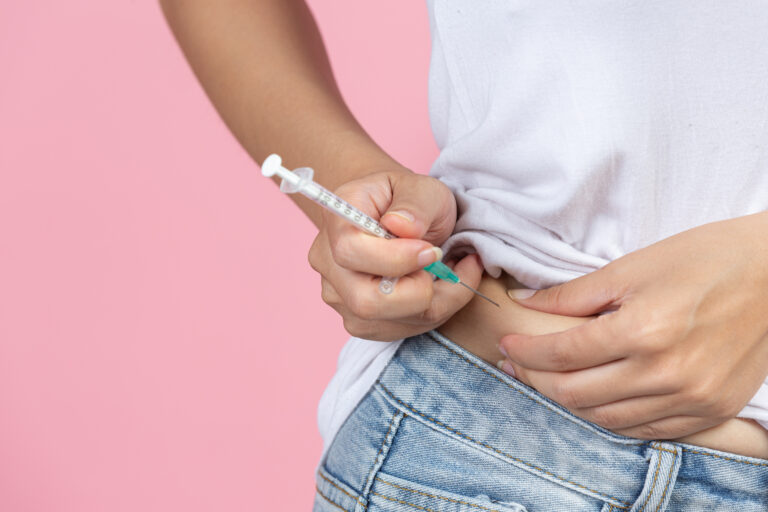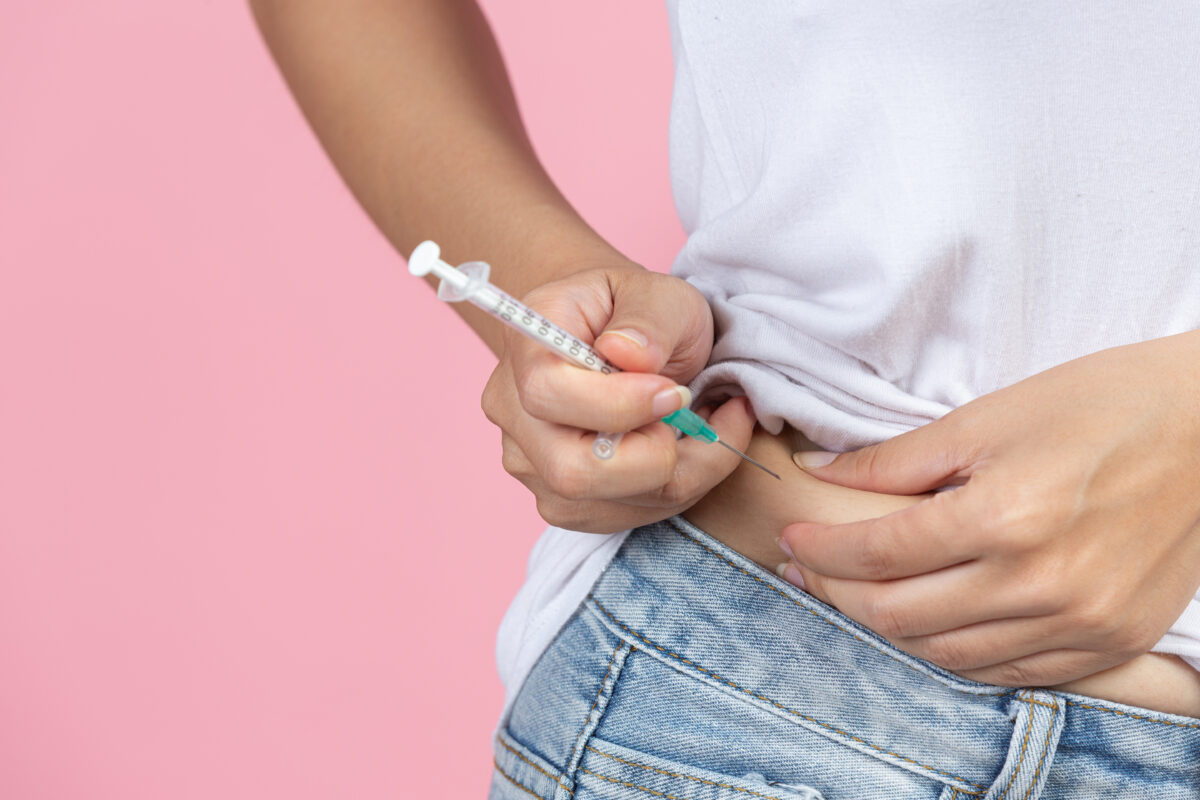Better Posture, Better Health.
Nutrition Therapy for Diabetes Patients

Diabetes is a chronic disease in which blood sugar levels are consistently higher than normal. It is resulted by pancreatic dysfunction causing the secretion of the hormone insulin is less than usual or there is insulin resistance. The patient therefore needs to control the level of blood sugar below 140 mg/dL. Diabetes is preventable by regular exercise for patients without disease or blood sugar level is controllable with nutritional therapy and exercise in order to minimize pharmacological therapy for diabetes patients.
Diabetes
Normally, the pancreas produces insulin in order to bring blood sugar to the tissues of the body to refuel energy. In which diabetes can occur only when the body acts abnormally as follows:
- When the pancreas no longer produces insulin
- When the pancreas produces a very small amount of insulin
- When the body does not respond properly to insulin a condition known as “Insulin resistance”
However, if the body is unable to fully utilize the sugar in the blood as energy due to a lack of the insulin, it will result in higher blood sugar levels.
Types of Diabetes
For diabetics, it can be divided into 4 types as follows:
- Type 1 diabetes mellitus is a condition where the cells in the pancreas are unable to produce insulin. Patients with type 1 diabetes must use insulin injections to help to control blood sugar in the right amount.
- Type 2 Diabetes mellitus is a condition in which the body is still able to produce its own insulin but cannot respond to insulin effectively. As a result, blood sugar level gets higher than normal. In case of severe symptoms, the body will not be able to produce enough insulin as needed. However, the treatment for type 2 diabetes requires patients to take medication along with behavioral modifications such as weight loss, diet control. and exercise regularly.
- Gestational diabetes mellitus is diabetes that occurs during pregnancy and it usually occurs in the 2nd and 3rd trimester of pregnancy.
- Specific types of diabetes mellitus can be occurred for many reasons, such as genetic diseases, pancreas disease, endocrine diseases and the usage of certain drugs, etc.
Prediabetes
Prediabetes is a condition in which the level of blood sugar is higher than normal but not high enough to be diagnosed with diabetes. Patients with pre-diabetes had no symptoms However, they can develop type 2 diabetes or may lead to other complications of diabetes, such as heart disease, commonly occurring symptoms in people with pre-diabetes.
Diet Therapy
Diet therapy is a therapy to provide diet knowledge to help in treatment and alleviate the symptoms of sick people. Various conditions including the suitability of the disease or condition during illness are considered according to the needs of the body in order to return to normal condition.
Nutrition Therapy for Diabetes
Nutrition therapy for diabetes not only helps to control blood sugar to be within normal limits but it can also help prevent complications that occur in people with diabetes, such as heart disease. Therapeutic methods are often used by choosing nutritious foods and it is good for health. There are 2 principles for choosing food as follows:
- Choose food that are low in calories
- Choose foods that are rich in complex carbohydrates such as starchy foods and dietary fibers including grain products, green leafy vegetables, nuts, and fruits.
Overweight Diabetics
Currently, there is no specific treatment for monkeypox but there are treatments to relieve symptoms and control complications. The Centers for Disease Control and Prevention says monkeypox is spread through direct contact with infected wounds, scabs, or bodily fluids. The disease can also be spread through respiratory secretions during prolonged exposure. Follow the below behaviors to protect yourself from being infected from monkeypox:
- Wash your hands with soap or alcohol gel often especially after touching animals or commonly touched public items
- Avoid contact with wild animals or animals that came from risk areas
- Avoid contact with people who have a history of coming from a high-risk area and have symptoms
- Avoid raising or importing wild animals from a foreign country where the origin is unknown
- Avoid contact with animal blood, secretions or pustules
- Consume only cooked meat
- Quarantine for 21 days after returning from an epidemic areas
- Vaccination against smallpox can help reduce the risk of infection
Treatment for Monkeypox?
Currently, there is no specific treatment for monkeypox. Treatment’s goal is to relieve symptoms and control complications. Monkeypox can be prevented by 85% with the vaccination against smallpox.
Vaccination against human smallpox can also prevent monkeypox. Therefore older people who were previously vaccinated against smallpox are still immune to smallpox. However, people born after 1980 will never be vaccinated against smallpox. As of July 2022, smallpox is not an epidemic and there is no vaccine available in Thailand.
To make an appointment for a consultation or talk to our doctors, Primocare Medical Clinic is ready to take care of your health and your mind to be completely healthy, promoting, protecting and healing. You can inquire or make an appointment in advance here.
Reference
ติดต่อเรา
Contact Us
Related Articles







